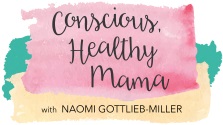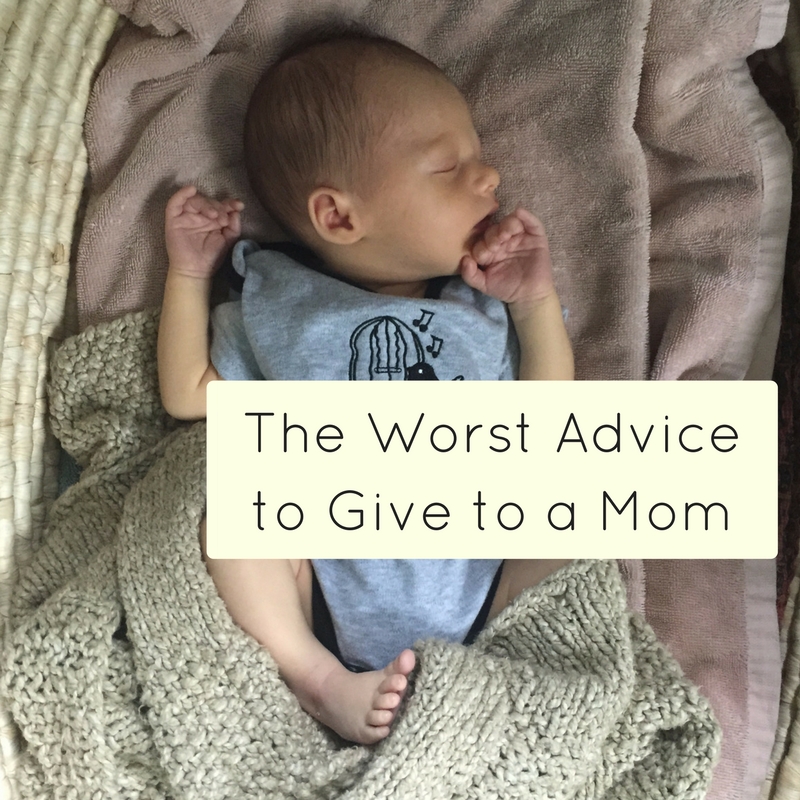“Sleep when your baby sleeps.”
Even before my daughter was born, the most frequent advice I received from friends and total strangers alike was to sleep whenever my daughter was sleeping.
After she was born, I remember laugh-crying hysterically whenever I heard this advice repeated.
First of all, my baby barely slept.
Second, when she did finally sleep I either had to pump so I had extra milk to give her because she had difficulty nursing in her first few weeks or I had to do one of another million things that needed to get done.
Honestly, all I wanted to do when my daughter slept was move my body without having to hold her at the same time. I craved my pre-baby yoga practice and would sneak in mini-yoga sessions whenever my daughter napped.
Once my second baby was born, the notion of sleeping when the baby slept was even crazier.
I understood the sentiment. My body needed rest postpartum and with newborns, sleep can be as hard to come by.
Still, as well-intended as the advice was, sleeping when my baby slept was painfully unrealistic and tragically unhelpful.
Moms are bombarded with “advice” daily.
Everyone seems to have an opinion about what we should or shouldn’t be doing with our kids.
I posted a question to t on facebook: “What’s the worst parenting advice you’ve ever received?” I got over 100 responses which ranged from familiar to weird to borderline abusive. Many were even contradictory to others on the thread.
A few days ago, I saw a blog with the headline: “An Expert Says, DO THIS Instead of Self-Care.”
Well that got me equal parts curious and annoyed. What could be more important than self-care, especially for mamas who are usually super-depleted and frequently self-care deprived?
So I clicked through and read that this expert felt moms needed to focus more on allowing themselves to be taken care of and mothered, rather than focus on their own self-care.
I appreciate her perspective. Moms deserve to be mothered and cared for just as much as they are doing those things for their own children. And they are often terrible at both asking for and receiving support.
But telling moms to wait for someone else to take care of them instead of doing the essential work of creating their own nourishing, practical self-care rituals is a move in the wrong direction.
That message is even further problematic for single moms or moms who frequently solo parent and might not have as strong a support network.
I feel pretty strongly about the idea that moms need to become exceptional self-care givers.
Moms have a hard enough time as it is navigating the thorny fire swamp of motherhood. All of the conflicting “do’s” and “don’ts” can make a person confused enough to burst into flame. All of the “should’s” we’re confronted with every day are like quicksand that sucks us further down into the pits of despair. And those “perfect mamas” who act like they have all the answers and dispense “advice” without being asked are like a R.O.U.S. (rodent of unusual size), attacking us when we are at our most vulnerable and chipping away at our confidence.
Did I take the Princess Bride metaphors too far?
Inconceivable!
The expert did admit that self-care is still important, but insisted that we focus too much on self-care and not enough on being cared for. While I understand the sentiment, just reading the headline made me feel like the damage was already done.
Lately I’ve seen a lot of push back against self-care and honestly, I’ve had it with all of these misguided attacks on self-care. Especially when it comes to moms. No one is more in need of self-care and support than mamas, who are the most likely to neglect their own care in favor of taking care of everyone else in their lives (kids, partner, parents, friends, their kids teacher, the cashier at the grocery store…).
In my opinion, we need self-care now more than ever.
I also think we need to stop telling one another what to do and we need to start listening.
We need to spend more time supporting one another instead of shaming one another.
I realize that often the advice is well intended. It’s often the delivery that isn’t ideal. And let’s be honest. Sometimes the advice isn’t well meaning and instead is a thinly veiled attack on the parent or her parenting choices.
I’ve been on the receiving end of both and let me tell you, the essentially feel the same.
Here are a few ways we can reframe advice into support so that we are encouraging our fellow mamas, not disparaging them.
1. DON’T OFFER ADVICE when it’s not requested.
We really could end everything here with this one, but I believe there is more nuance to encouraging and supporting other mamas beyond opting out of the dialogue. So I’m starting with this one as a reminder. Not everyone really wants advice, but almost everyone wants support.
However, if you do want to help and not be an asshole, try this:
2. COULD instead of SHOULD
Using the word “could” instead of “should” leaves more of an option for alternatives. For example: “You COULD try sleeping when your baby sleeps” instead of “you SHOULD sleep when your baby sleeps.”
Another word to avoid is “need” as in, “you NEED to sleep when the baby sleeps.”
It’s not a perfect fix and it certainly doesn’t work in all situations, but it’s a gentler way to offer a suggestion.
3. QUESTION instead of a STATEMENT
Offering advice or support as a question creates more opportunity to start a conversation instead of a full stop statement, which can be off putting and offensive.
A statement would be this:
Mom 1: “My daughter doesn’t sleep through the night.”
Mom 2: “You should try sleep training. It was a lifesaver. She cried for 30 minutes one night and then after that, she never did again.”
Versus this conversation:
Mom 1: “My daughter doesn’t sleep through the night.”
Mom 2: “Have you tried sleep training? It was a lifesaver for us.”
Mom 1: “Honestly, no. I am really uncomfortable with the idea of sleep training. It sounds really intense. And I really don’t like the idea of letting my kid cry it out.”
Mom 2: “Well it worked for us, but it certainly isn’t for everyone. I’m happy to share our experience with you, if you’d like.”
Instead of just giving someone your opinion and effectively telling them what they should be doing or what they could do “better”, open the door for actual conversation and connection by asking a question.
When we create a dialogue with one another, we can understand one another better, even when we disagree which is a better community builder, which leads beautifully into my next suggestion.
4. AVOID JUDGMENT.
It’s super important to recognize that everyone has different ways of parenting. One isn’t necessarily better than the other, just different. Similarly, everyone has a different experience of parenting.
In fact, among the only advice I give to new parents or soon-to-be parents is some variation of this:
“Listen to your own intuition and to your child. What works for some people doesn’t work for everyone. I am happy to share my experiences with you, if you’re curious, but a lot of my own experience of parenting has come through trial and error and more tears than I’d like to admit. Find what works for you and when it no longer works, find something else that does.”
Offering unsolicited advice because you believe that what the other parent is doing is “wrong” or “not ideal” is not only unhelpful, but divisive. We mamas don’t need more isolation. We need more connection, community, and support EVEN if they way we parent is different than that our closest friends.
For example, I nursed both of my kids and am still nursing my son, who is 18 months old. When I was a new mom, I remember seeing a fellow mama giving her infant son a bottle. I was surprised. Here I was in hippie capital of the world – didn’t everyone breastfeed their babies here? I secretly wondered why she made this choice. I’m not proud of it, but there was some judgment there, too.
I never found out why she didn’t breastfeed but in that first year of parenting, I came across a lot of other moms who didn’t and I learned a lot. I also stopped questioning the way other moms were feeding their babies. Fed is best.
Although there are some bonkers suggestions for feeding babies that are best ignored (“your baby is too skinny, feed her butter” said one pediatrician to a mama of a 3 month old baby. “your baby is colicky, give him some sprite. That will soothe him,” said one MIL to her daughter-in-law.)
Just because someone’s parenting style is counter to your own, doesn’t make it less valid.
5. When in doubt, BE KIND and COMPASSIONATE
We are all just doing our best here. Unsolicited or inconsiderate advice can make a mom feel like a failure, even if the advice is “well-intended.”
What moms really need is the reminder you support them and want the best for them. You can do this in any number of ways.
Know a mom who is deeply exhausted? Offer to watch her kid(s) so she can shower/nap/do yoga/read a book/get some work done.
Can’t watch the kid(s) yourself? Give her the gift of a babysitter on a day of her choice (and with the babysitter of her choice)
Know a mom who is trying to do it all? Offer to take a load off of her shoulders. Maybe run an errand for her or come over and do her dishes or her laundry or bring her a home cooked meal.
Know a mom who needs a break? Get in touch with her and schedule a night off or an afternoon off.
If nothing else, be a good listener. If she needs a shoulder to cry on or someone to vent to, don’t immediately offer your opinion. Listen to her first. And then ask if she’d like some advice or to hear your experience.
Be a good friend, not a counselor or a boss or a judge.
The important thing to remember here is that kindness and compassion goes a lot further than opinion.
When you impose your beliefs on someone else, you immediately put yourself and your choices on a higher level, which can do damage to any support you are trying to offer.
When you choose to be kind and considerate, you create a safe space for conversation, connection, true communication, and healing.
Next time you think about giving advice, consider how it might be received. Maybe change your approach. Maybe choose to be a good friend and ask your friend what she needs instead.




